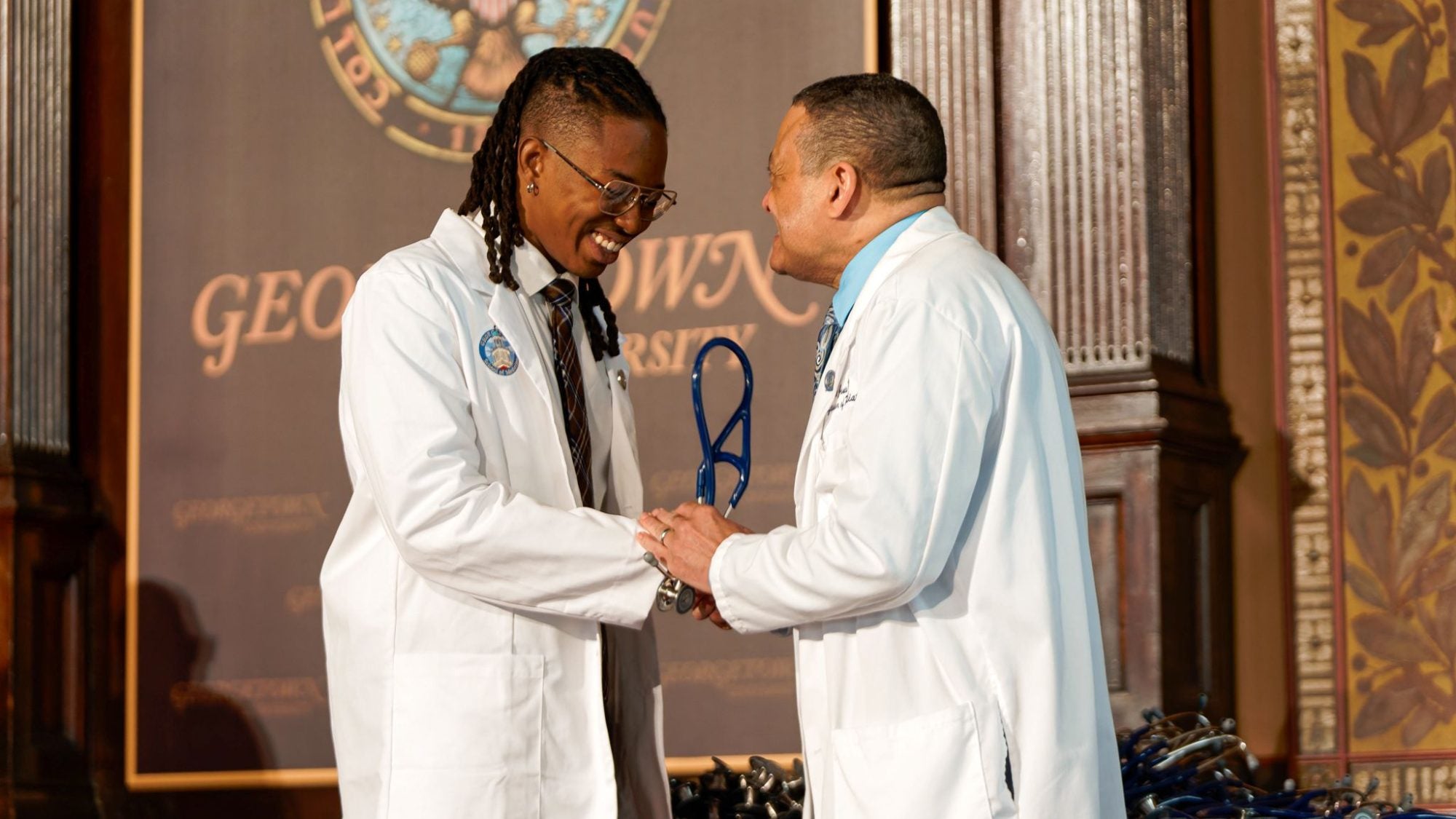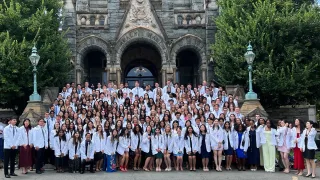Editor’s Note: This story mentions issues related to mental health and depression.
Dylan Hughes (M’28) is a first-year medical student in the School of Medicine. He’s just completed his first two months of classes and is eager to gain clinical experience on his road to becoming a physician. 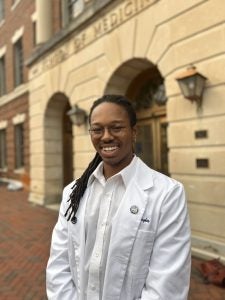
While the path to medical school is never guaranteed, for Hughes, getting to this point would have been unthinkable before.
Six years ago, Hughes didn’t even know if he’d graduate with a college degree amid struggles with mental health.
“It started when I first entered college, and I really struggled,” he said. “I ended up dealing with depression and anxiety disorder and didn’t have much of a way of managing that.”
After two years of working and learning more about mental health, he returned to the classroom and found his way to Georgetown, first through the Academy for Research, Clinical, and Health Equity Scholarship (ARCHES) Program and ultimately to the School of Medicine.
Today, his path to serving patients in medicine is a reflection of his own experiences and his commitment to mental health and health equity.
Getting Back to School
In 2018, Hughes was a math major in college. He struggled with depression and anxiety, and found his mental health struggles crippled his studies.
He left school and spent the next two years working odd jobs as a painter in a nursing home, an employee at a Dollar Tree and a bank teller. But returning to the classroom was always the end goal.
During this hiatus, he developed an interest in mental health.
Hughes’ brother is on the autism spectrum and over the years experienced mental health challenges, including a stay in an inpatient facility. Hughes said witnessing the shortage of psychiatrists, particularly physicians of color, in his native Oklahoma encouraged him to be a doctor.
For Hughes, the love for his brother and accompanying him through his journey, coupled with his own experiences with mental health, are his inspiration to become a doctor.
“I just knew I wanted to help people who looked like my brother and me, and I felt this was the best way to do it and lean on my skills in STEM,” he said. “I think my love for my brother was a big thing too because I know he’s not the only one who’s dealt with these things, and I know I have the capability of helping people like him.”
In 2020, Hughes got a fresh start and enrolled in McDaniel College in Maryland with a clear purpose. He thrived.
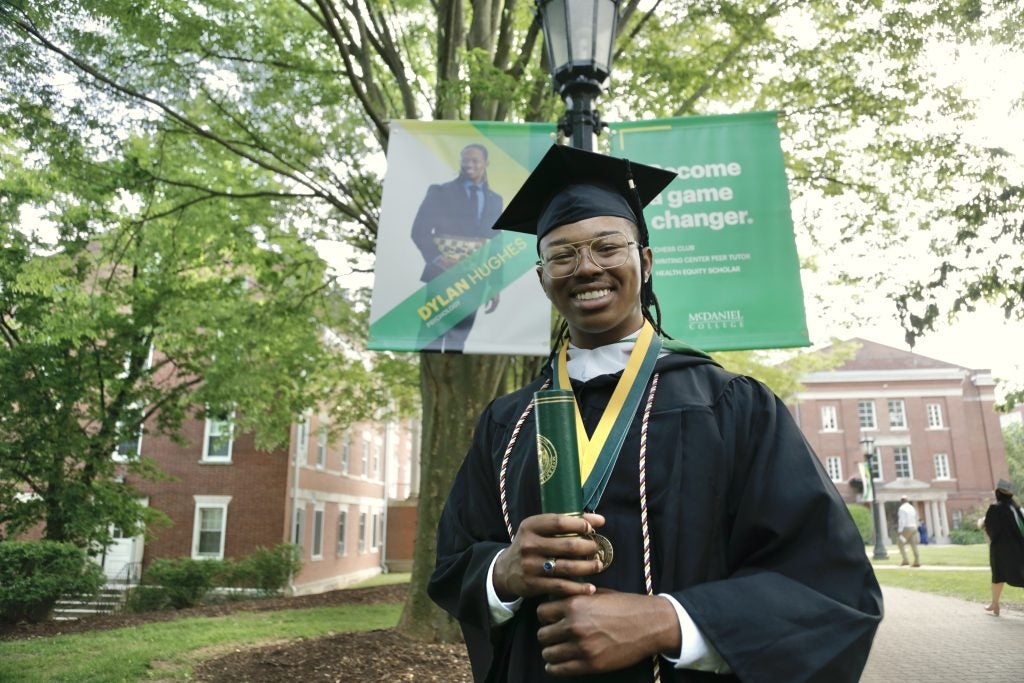
An Introduction to Health Equity With ARCHES
At McDaniel College, Hughes studied psychology on a pre-medicine track and dove deeper into health equity.
When he was searching for a summer experience to bolster his application for medical school, he discovered the Academy for Research, Clinical, and Health Equity Scholarship (ARCHES) Program at Georgetown.
Founded in 2017 by the School of Medicine, ARCHES offers aspiring physicians a six-week residential summer enrichment program that includes research engagement, clinical experience and opportunities to explore health equity challenges in DC. Through ARCHES, Hughes sharpened his application and interview skills for medical school while accessing a network of Georgetown medical students and professionals who mentored him on the path to study medicine.
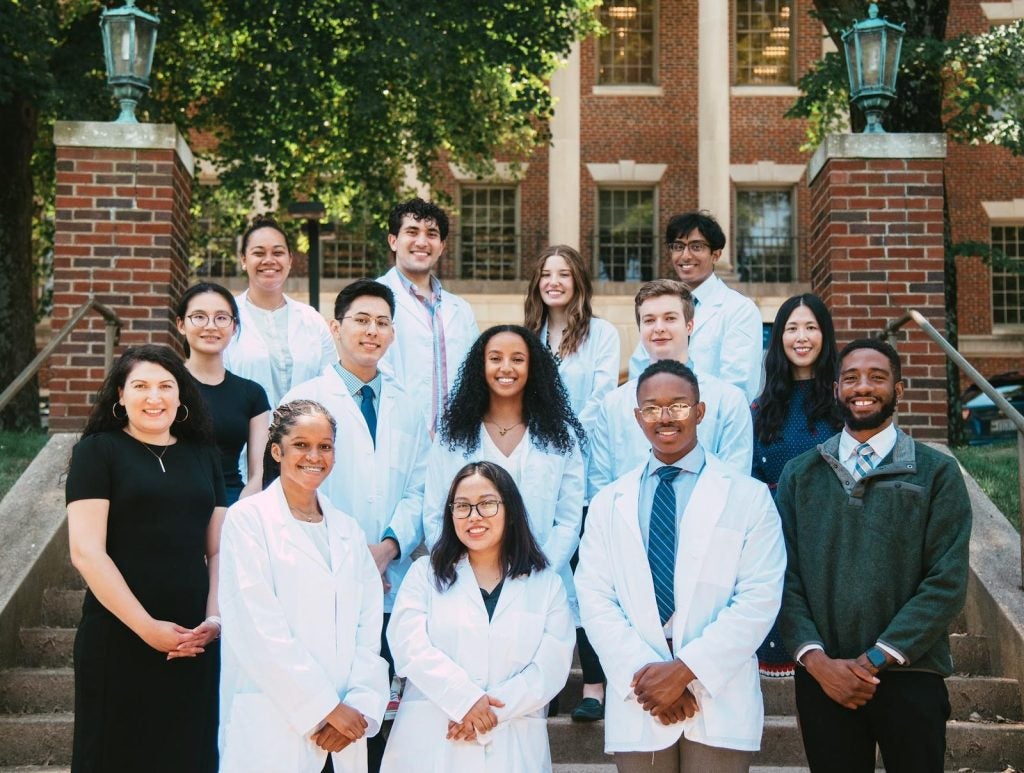
In ARCHES, Hughes got a preview of life as a medical student in a fast-paced environment. He especially enjoyed shadowing OB-GYN doctors that summer. He said seeing the comfort patients felt with their doctors reinforced his desire to pursue medicine.
Hughes credits ARCHES with empowering him to be a better advocate for himself, pushing him to seize every opportunity he could, including conducting research.
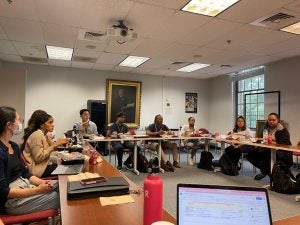
That summer, Hughes researched the mental health outcomes of bone marrow stem cell transplant survivors. Studying patient narratives, he compared the way patients who used their own stem cells expressed their emotions with patients who received stem cells from donors — which is typically a harder procedure with less optimal health outcomes, he said.
“What we found is that it was statistically significant, the kind of negative versus positive language used between the two groups,” he said. “What we thought of in terms of the surgery being more difficult actually had an effect on their mental health as well because their writings reflected it.”
Hughes also learned more about healthy equity in the classroom as well as through community service in DC. Through those experiences in ARCHES, Hughes began to understand some of the health disparities driven by race he saw in his own life growing up in predominantly Black communities in Oklahoma.
“What health equity means to me is ensuring that everyone has the opportunity to maximize their health outcomes and get the resources in order to do so,” Hughes said. “For me, it was just a way to find answers to a lot of the health disparities that I bore witness to.”
On the Doctor’s Path
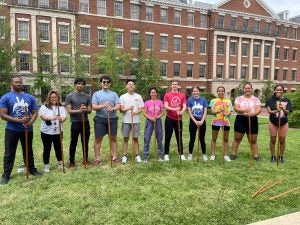
While applying to medical schools, Hughes worked as a pharmacy technician at CVS and Children’s National Hospital. He learned more about the complexities of the healthcare system, a system that’s even more confusing for immigrant populations like those he served in his jobs, he said.
It’s one of the reasons Hughes is learning Spanish and spent a month immersed in the language in Guatemala and Costa Rica before starting at Georgetown.
“Even if you just know a little bit, it means so much to the patient, just forming that connection with a patient,” Hughes said. “It’s another way to connect with patients, and the immigrant population is another vulnerable population that needs support. I want to do the best that I can.”
In 2024, six years after he left college, Hughes received admissions offers from four medical schools.
He chose Georgetown to continue building the relationships he discovered through ARCHES. He also appreciated the university’s commitment to mental health which he witnessed firsthand in his summer program, in which ARCHES staff talked through how to handle stressful situations and introduced participants to practices like gratitude journaling and meditation.
While Hughes has only started his medical school journey, he said he’s looking forward to shadowing physicians in a clinical setting and continuing to advocate for health equity and racial justice through the Racial Justice Committee for Change, an initiative at the Georgetown University Medical Center.
Long-term, Hughes is considering psychiatry. Looking back on his journey to medical school, he said he’d tell his younger self to persevere through adversity.
“I would tell him to keep pushing, to remain open-minded and to be adaptive and flexible,” he said. “Just follow what you’re passionate about. It will guide you because it’ll allow you to be more able to deal with the ups and downs. … And don’t be afraid to be vulnerable because people can surprise you and be more accepting than you could ever imagine.”
